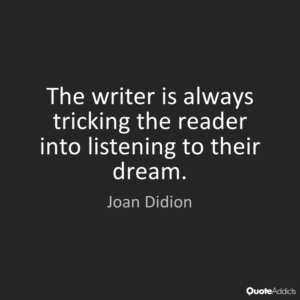The psychologist Otto Rank wrote that artists are perpetually in conflict with life. They need seclusion to produce their work, but they also need to go out into the world for stimulation to create their art.
Whatever takes me away from home, I’m always receptive to possible locations for stories, essays, and books–and I return with lots of notes and photographs. I was recently in Ghent, Belgium on a travel grant, liaising with officials from Ghent University to explore the possibility of a study abroad program with Michigan State University. The city is widely called “a hidden gem.” It’s all that, and more. Day after day I felt bombarded with impressions and ideas I knew would fuel my writing down the road. I fell in love with a city I’d known almost nothing about, and fell hard. Here’s why.
 First there are the people. As my favorite author Henry James would have put it, “the note” of the city is friendliness. I got that vibe everywhere, whether in sandwich or coffee shops, stores, restaurants, and even from strangers who helped me when I got slightly lost. Some of them walked a short distance with me to make sure I was headed in the right direction.
First there are the people. As my favorite author Henry James would have put it, “the note” of the city is friendliness. I got that vibe everywhere, whether in sandwich or coffee shops, stores, restaurants, and even from strangers who helped me when I got slightly lost. Some of them walked a short distance with me to make sure I was headed in the right direction.
 As a writer, I seek comfort and quiet when I travel and the Carlton Hotel Gent was the epitome of those things. Family owned, boutique-style, it was smoothly run, ultra-quiet, close to the train station, served delicious breakfasts, and the owners were perfect guides to the city and its restaurants. The hip Café Parti was nearby and if could’ve eaten every lunch and dinner there, I would have. It served Belgian specialties that I’d sampled before in Brussels and Bruges, but they were exceptional, especially the stoofvlees, a beef stew made with dark beer, and the onglet, hanger steak better than any I’d had in the U.S.
As a writer, I seek comfort and quiet when I travel and the Carlton Hotel Gent was the epitome of those things. Family owned, boutique-style, it was smoothly run, ultra-quiet, close to the train station, served delicious breakfasts, and the owners were perfect guides to the city and its restaurants. The hip Café Parti was nearby and if could’ve eaten every lunch and dinner there, I would have. It served Belgian specialties that I’d sampled before in Brussels and Bruges, but they were exceptional, especially the stoofvlees, a beef stew made with dark beer, and the onglet, hanger steak better than any I’d had in the U.S.
 I liked the modern lines of the hotel and the Café Parti (above) because Ghent has so much history in its architecture, from the Renaissance buildings along the canals, to the Romanesque St. Bavo Cathedral and the medieval Gravensteen fortress at the city center. Dipping in and out of these different periods was intensely enjoyable. And so was sampling my favorite Belgian chocolate, Neuhaus, and a Ghent specialty, neuzekes, candies filled with raspberry syrup that look like little pointed hats and are partly made with gum Arabic. They’re sensational.
I liked the modern lines of the hotel and the Café Parti (above) because Ghent has so much history in its architecture, from the Renaissance buildings along the canals, to the Romanesque St. Bavo Cathedral and the medieval Gravensteen fortress at the city center. Dipping in and out of these different periods was intensely enjoyable. And so was sampling my favorite Belgian chocolate, Neuhaus, and a Ghent specialty, neuzekes, candies filled with raspberry syrup that look like little pointed hats and are partly made with gum Arabic. They’re sensational.
Bikes are king in Ghent, or so they say, and it apparently has the largest bike-friendly zone in Europe. Ghent was the first city to designate a street as a “cycle street”—meaning that cars have to stay behind bikes. They’re everywhere, weaving through traffic and around the trams which snake along the sinuous streets which seem unlike any other street plan I’m familiar with from my previous years of visiting Western. There was something very calming about riding a tram or just watching one.
 For a city which is the third largest port in Belgium, and has 250,000 residents, Ghent never felt overwhelming. It welcomed and fascinated me, and unlike the more famous Bruges half an hour away (which has twice as many tourists), it didn’t feel like a museum despite the amazing architecture from so many different periods.
For a city which is the third largest port in Belgium, and has 250,000 residents, Ghent never felt overwhelming. It welcomed and fascinated me, and unlike the more famous Bruges half an hour away (which has twice as many tourists), it didn’t feel like a museum despite the amazing architecture from so many different periods.
Before I got there, I had plans to set a novel elsewhere in Flanders, but after this past week, the novel-in-progress has moved to Ghent. Frankly, I wish I could, too. For awhile, anyway….
Lev Raphael is the author of the memoir/travelogue My Germany and 24 other books in many genres. He speaks French, German, and some Dutch.



